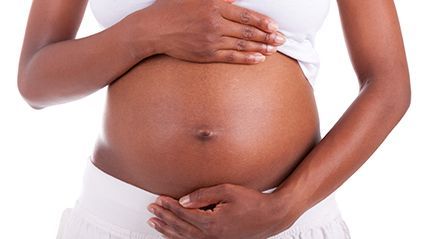MONDAY, Feb. 22, 2021 (HealthDay News) — Pregnant women have high COVID-19 infection rates — especially women of color — and they should be near the front of the line for vaccines across the United States, researchers say.
“Our data indicates that pregnant people did not avoid the pandemic as we hoped that they would, and communities of color bore the greatest burden,” said senior study author Dr. Kristina Adams Waldorf, an ob-gyn with the University of Washington School of Medicine.
Researchers analyzed Washington state data and estimated that the infection rate in pregnant women was 70% higher than among adults of in a similar age range.
They also found that rates of COVID-19 in pregnant women from communities of color were two to four times higher than expected, based on the race-ethnicity distribution of pregnant women in the state in 2018.
A high number of pregnant women with COVID-19 also received their medical care in a language other than English, which shows the crucial need for public health outreach to boost vaccination rates in these communities, according to the authors of the study, published Feb. 16 in the American Journal of Obstetrics and Gynecology.
“We were disheartened to see the higher infection rates in communities of color, as well as in patients with limited English proficiency,” Adams Waldorf added in a university news release.
Some states — including Texas, New Hampshire, New Mexico and Alaska — prioritize pregnant women for COVID-19 vaccines in schedule phase 1B, but many others don’t, the researchers noted.
“The vaccine distribution plans vary quite a bit, state by state, and pregnant women are written out of the allocation prioritization in about half of U.S. states. Many states are not even linking their COVID-19 vaccine allocation plans with the high-risk medical conditions listed by the [U.S. Centers for Disease Control and Prevention] — which include pregnancy,” Adams Waldorf said.
“The higher infection rates in pregnant patients, coupled with an elevated risk for severe illness and maternal mortality due to COVID-19, suggests that pregnancy should be considered a high-risk health condition for COVID-19 vaccine allocation in phase 1B all across the United States,” she added. “The time to act is now.”
Pregnant women should discuss the risks and benefits of COVID-19 vaccination with their prenatal care provider, Adams Waldorf said.
More information
The U.S. Centers for Disease Control and Prevention has more on pregnant women and COVID-19 vaccination.
SOURCE: University of Washington, news release, Feb. 16, 2021
Copyright © 2026 HealthDay. All rights reserved.

